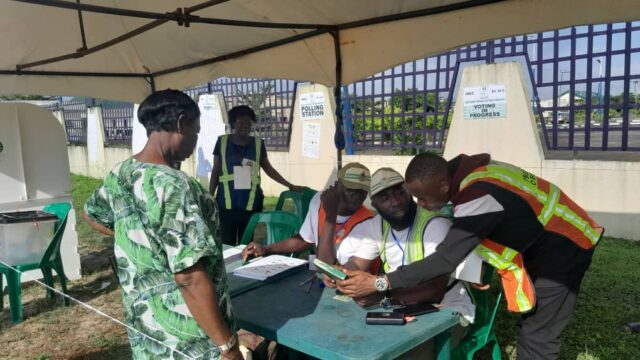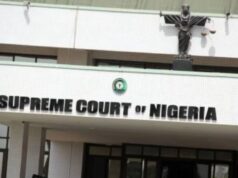Today, Saturday, November 16, 2024, indigenes and residents of Ondo State across the 18 local government areas will be going to the polling booths to elect their new governor.
The election is a very important one not only for the Ondo people but for all Nigerians as it tasks the integrity of the Independent National Electoral Commission (INEC) and shows the progress that has been made after the widely-criticised Edo State election in September.
The INEC had assured Nigerians that it had learnt its lessons from the immediate past off-cycle gubernatorial election in Edo State.
Critical areas to watch to see how far the electoral umpire has effected necessary corrections are in the early deployment of electoral materials and staff; general logistics, collation of results, prompt transmission of the collated results on the INEC Result Viewing (IReV) portal.
Whether or not the INEC is going to be taken seriously will depend on the handling of today’s election which many people have described as very critical to the integrity of the Commission going forward.
Election in Ondo State is not always easy given the terrain. There are areas described as hard-to-reach. They are riverine areas, where observers say electoral fraud is usually rampant. It is believed that part of the INEC’s readiness must have included water-tight measures to ensure that results that would come from the Ilaje area of the state in particular is reflective of the people’s votes.
Another area of major concern is the general management of the result. Election observers in Edo State were particularly critical of seeming lack of transparency in the management of the EC40G (This is a summary of registered voters of polling units where elections were cancelled or did not occur. This form can be manipulated and submitted as if election was held in such area/areas to achieved an untoward aim.
The behaviour of the people today in relation to their willingness to vote or otherwise would go a long way to determine their confidence level in the exercise as being handled by the INEC.
Recent elections have shown drastic low turnout of voters. Even where a large number of registered voters collated their permanent voter cards (PVCs) a far less number shows up to do the actual voting.
A political affairs analyst said of the current trends in Nigeria’s elections: “The number of PVC collection does not translate to huge voter turnout. People collect their PVCs without coming out to vote. Some collect their PVCs for some other reasons other than voting. Some have also lost confidence in the process.”
Speaking specifically on today’s election, the analyst said: “If voters believe their vote will not make a significant difference in the election outcome or that the election process lacks transparency and fairness, the perceived benefits of voting decrease. In the 2020 governorship election in the state, distrust in the electoral process and dissatisfaction with political parties may have reduced the perceived benefits of voting.”
The outcome of the election is dependent on the majority votes to be secured from the 1,793,914 eligible voters by either the incumbent Governor, Lucky Aiyedatiwa or Agboola Ajayi of the People’s Democratic Party (PDP).
In 1999, the Alliance for Democracy was in power in Ondo State under Adebayo Adefarati. The party was defeated by the PDP in 2003 in an election won by the late Olusegun Agagu.
Today, members of the National Assembly will be supervising the election as part of their oversight functions. Their presence will enable them see things for themselves as the federal legislature is in the process of further amending the 2022 Electoral Act.
The INEC said that 18 candidates representing 18 political parties would be taking part in the election.
But observers have said that the battle was only among three or four candidates. According to them, those actually in the race are APC, PDP, Labour Party and Zenith Labour Party (ZLP).
The Commission had also as of October 5, announced that a total of 24,148, representing 32.3 percent of the expected polling and collation agents for the election had been submitted by political parties.
According to INEC, while the 18 political parties participating in the election were required to submit a total of 74,790 agents to cover the state’s 3,933 polling units and 222 collation centres, only 24,148 agents were uploaded to the commission’s portal before the September 30 deadline.
It was also observed that some of the parties did not even submit any agent, yet they are part of the election.
The people’s choice must be respected today to redeem the ebbing integrity of the INEC.







